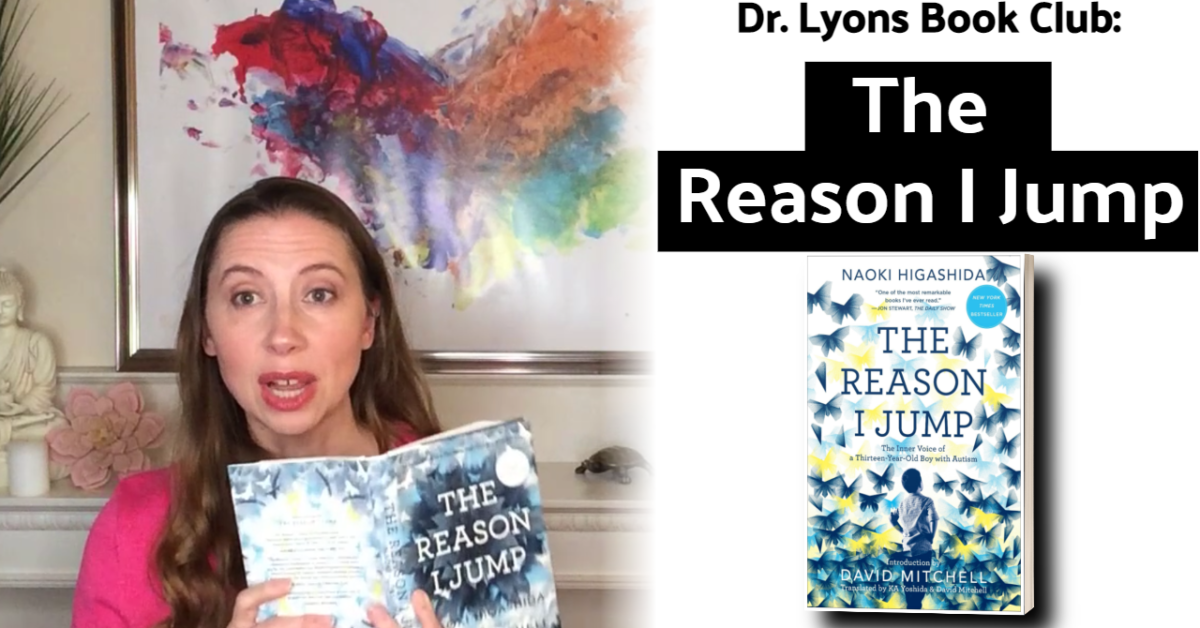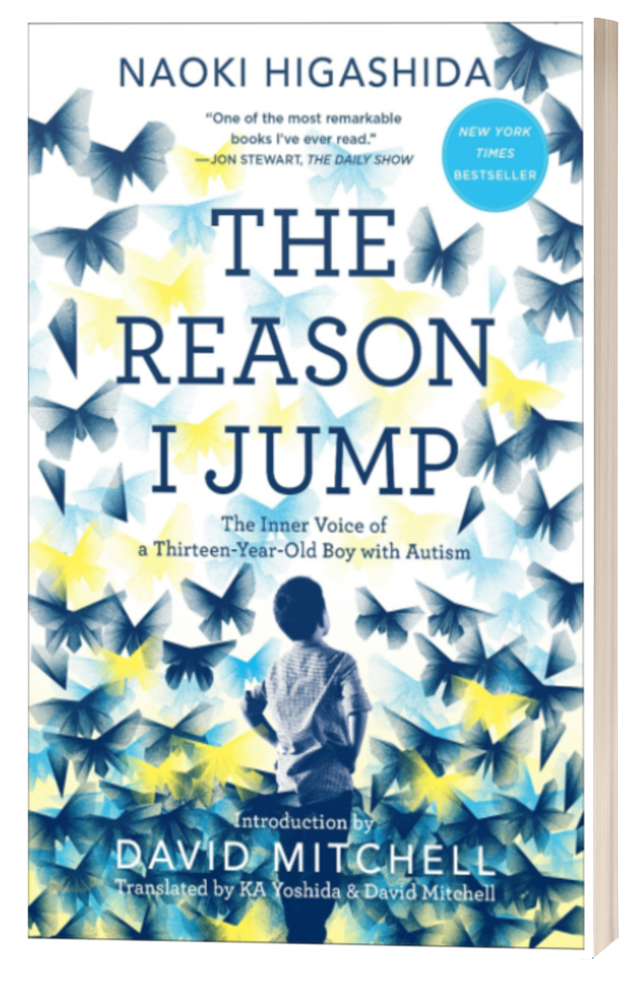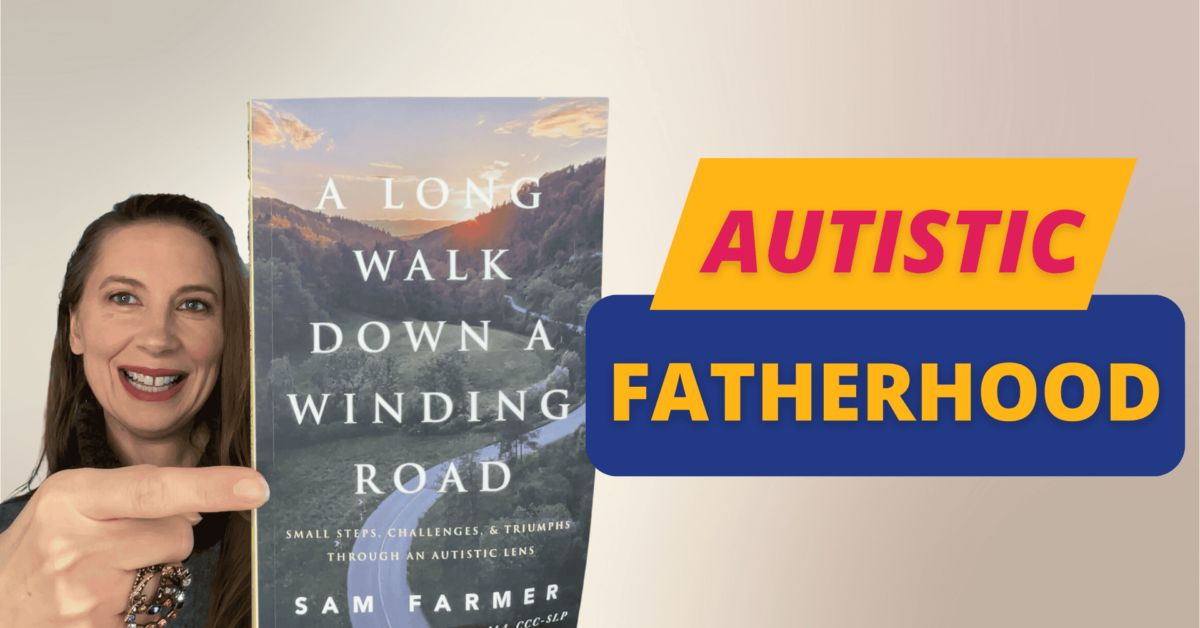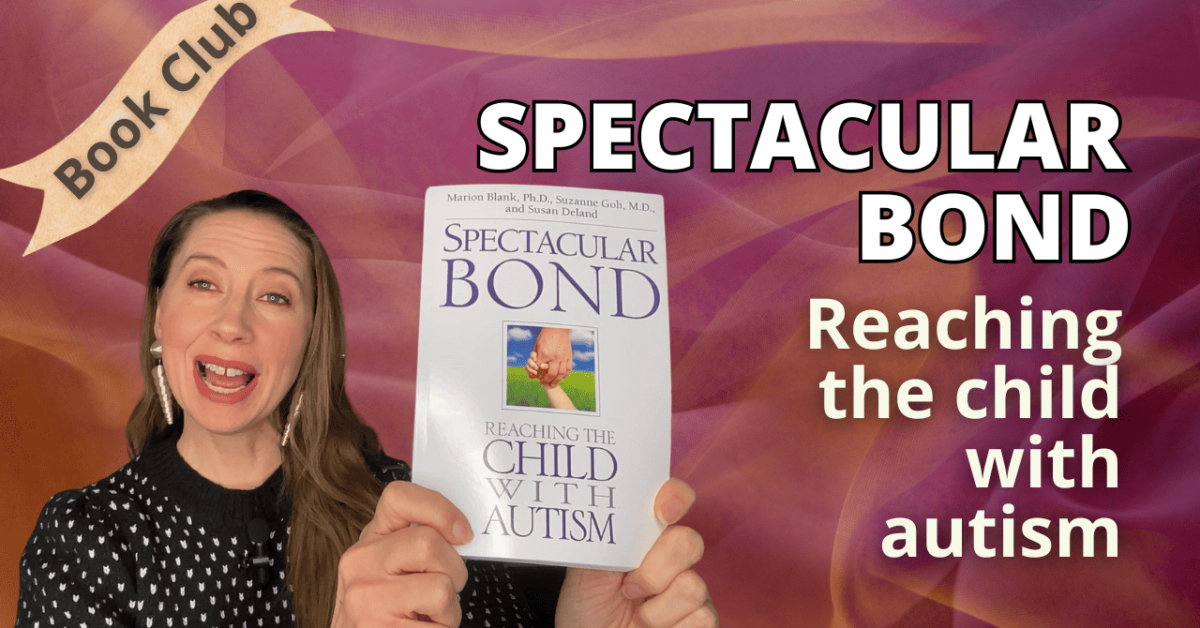If you are a parent who wants to know what your child with autism might be thinking or if you’re someone with autism and you want your parents to know that you’re smart and you’re doing your best and kind of all those thoughts in your head that you haven’t been able to express, then this blog post is for you.
This month’s Book Club is:
The reason I Jump: The Inner Voice of a Thirteen-Year-Old Boy with Autism
The reason I love this book is that it was written by a 13-year old in Japan with autism who can’t speak reliably. And if you’ve ever wanted insight into the mind of someone with autism, then this book is going to do a lot for you!!
It was actually translated by a father whose child also had severe autism and had difficulty in speaking. And so what this father says in the introduction is that this book was a Godsend.
And I quote:
“Reading it felt as if for the first time our own son was talking to us about what was happening inside his head through Naoki’s words.”
That’s the translator, KA Yoshida.
I picked out five really great questions that the author answers. So let me just go through these now, because these are questions you probably asked yourself.
How are you writing these sentences?
His answer, “You might think that speech is the only way to get your points and attention across, but there is another way to say what you want without using the vocal nervous system. At first, I never dreamed I could make it work, but now I’m well able to express my true self using only a computer and an alphabet grid.”
And he goes on to say “Not being able to talk means not being able to share what you’re feeling and thinking. It’s like being a doll, spending your whole life in isolation without dreams and without hopes. Sure, it took a long time before I could finally start communicating via written text on my own. But on that first day when my mom supported my writing hand in hers, I began to acquire a new way of interacting with others.”
Just how awesome! If you’ve ever thought, “Oh, my child is so smart, they just can’t express it.” You’re right.
Here’s another question that he answers:
Do you find childish language easier to understand?
And his answer is, “Children with autism are also growing and developing every single day. Yet we are forever being treated like babies. I guess this is because we seem to act younger than our true age. But whenever anyone treats me as if I’m still a toddler, it really hacks me off.”
“I don’t know whether people think I’ll understand baby language better or whether they think I just prefer being spoken to in that way. I’m not asking you to deliberately use difficult language when you talk to people with autism, just that you treat us as we are, according to our age.”
“Every single time I’m talked down to, I end up feeling utterly miserable, as if I’m being given zero chance of a decent future. True compassion is not about losing the other person’s self-respect. That’s what I think, anyway.”
What a great answer to a question. Here’s another question:
Do you prefer to be on your own?
Many times we think, oh, they just want to be left alone. They’re just off to themselves. Here’s his response: “Oh, don’t worry about him. He’d rather be on his own. How many times have we heard this? I can’t believe that anyone born as a human being really wants to be left alone. No, not really, not for people with autism. What we’re anxious about is that we’re causing trouble for the rest of you or even getting on your nerves.”
“This is why it’s hard for us to stay around other people. This is why we often end up being left on our own. The truth is, we’d love to be with other people, but because things never, ever go right, we end up getting used to being alone without even noticing this is happening. Whenever I overhear someone remark how much I prefer being on my own, it makes me feel desperately lonely. It’s as if they’re deliberately giving me the cold shoulder treatment.”
Here’s another question.
Do you hate it when we make you do things?
“As kids with autism, we would like you to watch out for us, meaning please never give up on us. The reason I say watch out for us is that we can be made stronger just by the fact that you’re watching. Just going by how we respond, it’s difficult for you to tell if we’ve understood what you’re saying or not. And often we still can’t do something. However, often you’ve shown us how to do it. That’s just the way we are. On our own we simply don’t know how to get things done the same way that you do them.”
“But like everyone else, we want to do the best we possibly can. When we sense you’ve given up on us and makes us feel miserable. So please keep helping us through to the end.”
I got emotional when I was reading that. Yeah, I know it’s really hard as a parent in many ways and not in a hard way where you don’t love your child. But yeah, just keep searching for those answers. You’ll find them.
He has a lot of great questions. I really love this book. It’s a quick read, it’s not very thick. It was a New York Times best-seller. So definitely if you want to get more insight into the thoughts your child could have, this would be a great book. The last question, I love this question.
Do you enjoy your free time?
Here’s his response. “So what do you do in your free time? Because for people with autism, free time is in fact un-free time. You can do whatever you feel like doing now, someone might tell us. But actually it’s pretty hard for us to find something we do feel like doing, not just like that. If we happen to see some toys or books we’re always playing with or reading, then sure, we’ll pick ’em up.”
“Thing is, however, that’s not so much what we want to do as something we can do.”
“Playing with familiar items is comforting because we already know what to do with them. So then of course, people watching us assume, ‘Ah! So that’s what he likes to do in his free time.’ However, what I really want to do is to get stuck in some difficult book or to debate some issue or something else. We are misunderstood, and we’d give anything if only we could be understood properly.“
“People with autism would be suffering breakdowns over this all the time if we weren’t holding ourselves in so tightly. Please understand what we really are and what we’re going through.”
If you’d like to get more insight into what your child may be thinking, of course everyone thinks differently, but this is certainly an insight that is worth reading and exploring. I definitely recommend this book.





